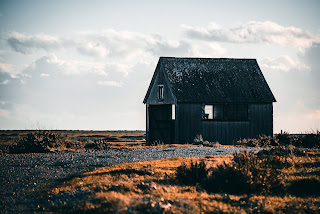(revised on Medium) On the importance of being absent (series: notes to myself)

It is an hortus conclusus, the walls of which have been built through decades of carefully honed distraction, deeply-acquired habits of hardened indifference, and willful rejection of pleasant whispers.
That quiet space is not natural. But it was already a naturally protected corner of your solitude. A promising spot in a gentle valley, where the winds of chatting voices always struggled to reach, hollow concerns never had strong roots, fashionable trends were usually a rare and short season.
It took efforts to build the protections. Distance from people. Some readings, chosen. Thoughts shaped and reshaped like pebbles in the river of doubt. Feelings, but only the robust ones, that could cement the unfelt. These and other heavy stones are now sheltering that natural space on all sides.
They block, exclude, filter, select. They let the outside be a stranger, never hated or feared, but not always welcomed, because the inside "cannot bear very much reality". "Noli foras ire, in te ipsum redi. In interiore homine habitat veritas" (Augustine, De vera religione, XXXIX, 72) is written on the door that leads from the hortus to the chaos. And on the other side, Rilke's young poet can read: ἀγεωμέτρητος μηδεὶς εἰσίτω ("let no one untrained in geometry enter". Elias' commentary on Aristotle's Categories: Eliae in Porphyrii Isagogen et Aristotelis categorias commentaria, CAG XVIII).
It is in such absence of the world, in this quiet space, that the world can be finally approached safely, not as a blinding projection from without, on a misleading cave, but reflectively, as a conception from within, finally hearing oneself thinking.
The rest is violence.
Photo by Dmitry Zvolskiy from Pexels





Comments
Post a Comment